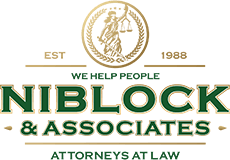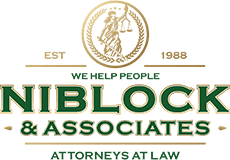CHAPTER 7 VS 13 BANKRUPTCY
Serving Clients in All Surrounding Arkansas Counties
This detailed and practical comparison of the two most common bankruptcy options – Chapter 7 vs 13 bankruptcy – explains which situations each chapter is best for.
Chapter 7 Bankruptcy
An ideal Chapter 7 debtor is someone who may have recently been divorced (unless they have divorce debt), lost their job, had their income reduced significantly, went through a tough medical issue that left them with medical bills or behind on their normal bills or has been foreclosed on or had a vehicle repossessed. A Chapter 7 provides the debtor with the best opportunity to quickly regain their life and have a fresh start.
Chapter 7 Means Test
If it appears Chapter 7 is the easiest and best option to handle your financial issues, the next question is whether you qualify for Chapter 7. Bankruptcy laws require your “household income” be at or below the “median income” for a similar sized household in Arkansas. If your income is “above median,” you may still qualify. The Means Test weighs your monthly income and necessary expenses and determines if you have any “disposable income,” The Means Test is challenging; therefore, choosing the Experienced Bankruptcy Attorneys at Niblock and Associates is an important step to overcoming that challenge.
Exemptions
Arkansas has specific bankruptcy exemptions that may protect your belongings. Provided you are current on your payments, most debtors can keep their home and vehicles in Chapter 7. Occasionally, a debtor will have more value in their property than there are exemptions to protect it. If that occurs, the debtor may need to File a Chapter 13, or choose the let the Trustee have the property, or somehow come up with the money to pay the Trustee for the non-exempt value in their property to keep it. Choosing the experienced bankruptcy attorneys with Niblock & Associates can assist with this process and help ensure proper protection of your belongings.
Automatic Stay
Upon filing bankruptcy, the court generally imposes an “automatic stay” that freezes all creditor actions immediately. The automatic stay stops creditors from moving forward with any collection activities, ranging from repossessions, lawsuits to phone calls. Creditors are not allowed to contact the debtor without permission from the debtor or the court. If a creditor is currently attempting to foreclose or repossess a vehicle (which is usually a reason to file Chapter 13 instead of Chapter 7, unless you want to let the property go back to the creditor), that action must stop immediately upon filing bankruptcy; however, upon conclusion of a Chapter 7 repossession and foreclosure can and will re-start.
Meeting of Creditors
The court sets the 341 meeting of creditors after filing occurs. The debtor will be required to attend the meeting with their attorney. As of 2020, Arkansas Meeting of Creditors are held telephonically, which is very convenient. The meeting can be short and simple if the case is not complicated, and the trustee has been given all the necessary documentation. Creditors do not normally attend the meeting although they have the right to. We generally see creditors with serious concerns attending these meetings. Assuming the case has no other pressing issues, discharge of debts occurs two months after the meeting date and the case will close. The typical Chapter 7 case around six months.
Discharge Of Debts
Upon receiving their “discharge,” debtors will no longer owe any previous dischargeable debts. “Non-dischargeable” debts include child support/alimony, tax debts, student loans, debts based on Fraud and debts related to criminal convictions. Most other debts, such as old utility bills, credit cards and medical bills, will be eliminated, and the debtor will have their fresh start.
Chapter 13 Bankruptcy
Chapter 13 is a reorganization of your debt. Unlike Chapter 7, the process is longer; however, it usually takes care of a lot. The Chapter 13 process lasts anywhere from three to five years and the debtor will have to make a monthly payment to the Chapter 13 Trustee’s Office.
The “disposable income” of the debtor, as well as about seven (7) other factors, determines the monthly payment amount. Those issues range from debts owed to having to pay a certain amount to keep personal assets. Our experienced bankruptcy Team at Niblock & Associates can assist you in determining you Chapter 13 Plan Payment based on your goals and specific situation.
Reasons To File Chapter 13
There are many reasons folks file for Chapter 13. Here are the top six (6) reasons you many want to file Chapter 13:
- Avoid foreclosure on your house;
- Avoid repossession on your car or truck;
- Pay Back Tax Debt and stopping on-going interest and penalties;
- Falling behind on your bills and needing to reorganize your debts to prevent lawsuits and garnishments (or stop them altogether);
- Unable to file the Chapter 7 because you above exemptions, high income, Time barred from another Bankruptcy case;
- “Divorce Debt” needed to be wiped out.
Payment Plan
The most important part of a Chapter 13 bankruptcy case is usually the plan of Repayment. This plan will state the duration of the case, three to five years, and the monthly payment the debtor will pay to the Chapter 13 Trustee. Creditors can either accept the terms of the Plan or Object to them. If they Object, you can rest assured that the Experienced Attorneys at Niblock and Associates will fight to protect your rights and interest and resolve any issues. However, if the issue cannot be resolved, we have no problem fighting in Court for you.
At the end of the term of your plan, all of your dischargeable debts (except for your “long term continuing debts” which is usually a home mortgage) will be considered discharged, Similar to a Chapter 7 , certain debts are non-dischargeable such as student loans, child support, alimony, debts because of Fraud and Criminal conduct.



